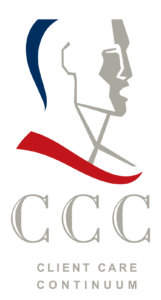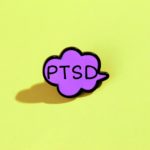Table of Contents
Many people who are serving in the military or have been deployed are struggling with mental illnesses. After deployment coming back to your civilian life, adjusting to the normal routine can be very challenging for some veterans who were exposed to severe trauma in their military life. And because of this, they get addicted to substance use in order to deal with the symptoms of PTSD. According to research, about 20% of US veterans returning from the military or war are facing addiction and the symptoms of PTSD.
PTSD in the Armed Forces
Veterans can be addicted to substance use during their time in the military or after deployment. But the studies show that even if they are not addicted to substance use before deployment after experiencing PTSD can increase the chances of addiction, after deployment.
After terror attacks, combat, war the symptoms of PTSD can occur in veterans. Following are some of the symptoms of PTSD.
- Re-experiencing the traumatic event, overthinking about it.
- Flashbacks, nightmares that trigger you.
- Avoiding situations that can remind you of the trauma.
- Pessimistic thoughts beliefs about the event.
- Insomnia, trouble focusing, anxiety.
- Emotional numbness, and persistent sadness.
Symptoms of PTSD can occur right after the traumatic event but this is not necessary, in some cases you may have the symptoms months years after the event. Symptoms may trouble or disturb your daily life activities, your work, your interpersonal relationships and your mood. So it is important to seek help.
The Link between PTSD and Addiction in Veterans
According to the Drug Policy Alliance, about 11% of current veterans use drugs, in general, military personnel have a greater percentage of substance use disorders than the normal population. So many veterans having symptoms of PTSD use drugs or alcohol to relax their minds and feel better. To numb their symptoms of PTSD they use drugs instead of going to the doctor therefore 27% of veterans diagnosed with PTSD also have substance use disorder.
How Common Is Co-occurring PTSD and SUD in Veterans?
- Most of the veterans with PTSD were also diagnosed with substance use disorder.
- Veterans returning from the wars of Iran and Iraq were diagnosed with substance use disorder and every 1 in 10 returning veterans was having it.
- The veterans who use nicotine were double the amount of people having PTSD than veterans without the symptoms of PTSD.
- Almost every third person who was looking for the treatment of PTSD had a substance use disorder.
- The war veterans also tend to use excessive amounts of alcohol in a short period, i.e binge drink.
Problems Associated with PTSD and Addiction
When you are in emotional distress it becomes hard for you to maintain your health, your relationships with others and your mood. So it can be hard for veterans to better perform their job, to spend time with their close ones or to follow social norms and standards. The traumatic memories and recollections trigger the symptoms of PTSD. They keep you emotionally charged, emotionally weak.
There are some prominent issues that veterans suffering from addiction and PTSD face. We have listed them below.
Permanent Injury and Chronic Pain
Veterans returning from war zones struggle with many injuries, from a minor headache to severe limb distortion, the issues are quite prominent. Doctors prescribe opioids for the injuries while opioids are quite effective but they are addictive as well so there are higher chances that veterans may get addicted to them. Addiction to opioids can cause serious problems like suicidal thoughts, running from home.
Criminal and Legal Challenges
The highest rates of crimes and legal challenges arose after world war two and it is closely related to PTSD and substance use. Between 1946-49 34 %of new admissions in prisons were that of veterans. The veterans that have retired homes were at a greater risk of incarceration because of the usage of the drug in war. So as a result 21 % of veterans in state prison and 23% veterans in Federal prison were present. It was found that half of the male veterans who were diagnosed with PTSD as well were incarcerated because of drug usage. Researcher says that the same is with the veterans that return home today they also have a higher number of sufferers of addiction and PTSD.
Domestic Problems
PTSD and substance use can cause many domestic problems, it may become challenging to maintain your relationships, your communication, the connection with people, trust, and affection while having the symptoms of post-traumatic stress disorder.
The stress, recollections of traumatic past, isolation, fear, aggression can badly interrupt daily life, which is a result of addiction and PTSD. Your family, friends, loved ones may feel bad, hurt, distant because of your isolation, your behavior and your addiction to substance use and PTSD. Addiction makes you isolated, emotionally weak, low self-control, and PTSD further makes it miserable so things get worse this way.
Homelessness
The American Psychological Association reported that the homeless veterans in Iran and Afghanistan were mostly the ones with PTSD. About two-thirds of the homeless veterans were tested positive for PTSD. And these homeless veterans were also diagnosed with substance use disorder. 1 in 5 veterans in addiction treatment was having symptoms of PTSD as well. So the severity of their mental condition and substance use lead the veterans to become homeless. They were abandoned by everyone.
Treatment for Veterans
Veterans struggling from addiction and PTSD have a wide range of treatments that are available to them. Unlike average civilians, they have the option to seek treatment by the Department of Veterans Affairs, VA. This is quite convenient even for veterans with not so good financial conditions. VA offers many treatments including Addiction and PTSD.
Final Words
Veterans need to get treated immediately if they have PTSD or are addicted to substance use before their condition gets severe.
“We have found that both post traumatic stress disorder and substance abuse can be treated concurrently [meaning, at the same time].”- Dr Ron Acierno (Clinical Psychologist.










